usmbguest5318
Gold Member
The U.S. expends more money for military purposes than any other nation on the planet, and not by a small margin.
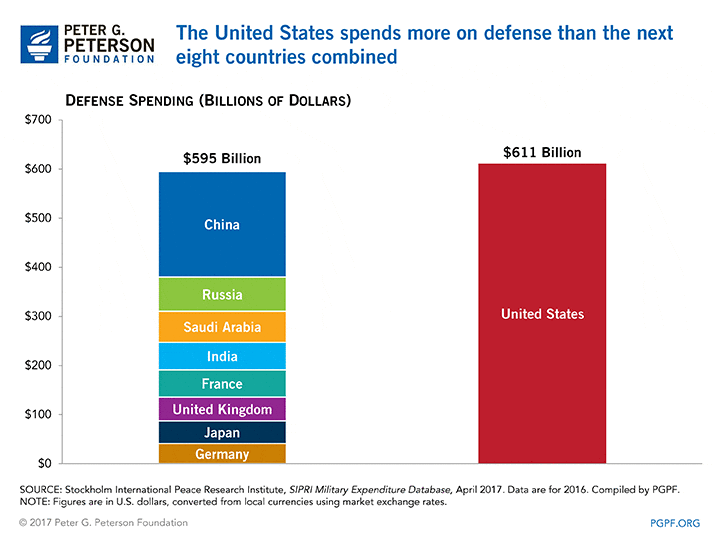

And to what end? Of course there are things our military accomplishes that defend U.S. interests. The Navy's actions against trade piracy is an example. I'm not suggesting that we shouldn't do such things, but do we need to spend ~$600B to do that and carry out other peacetime national defense activities?
To put the extent of military spending in domestic perspective:
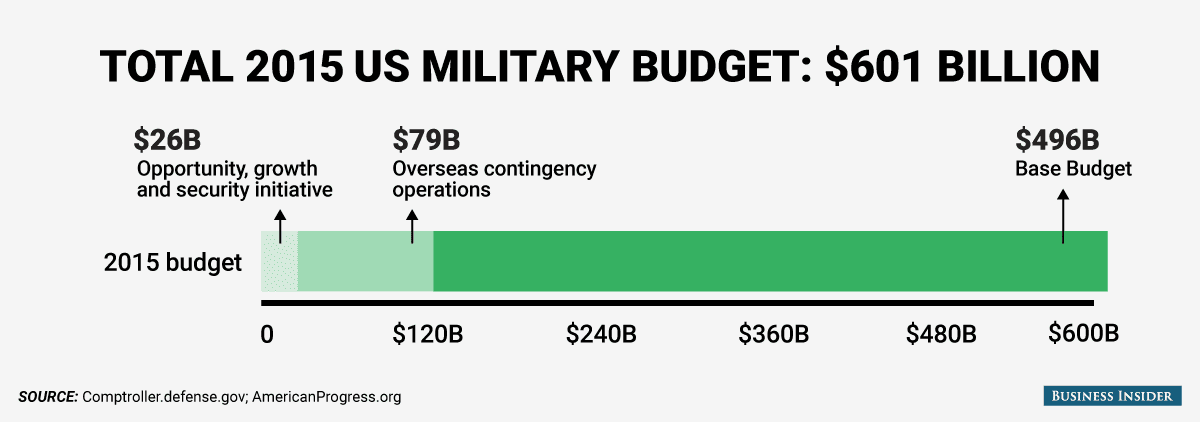
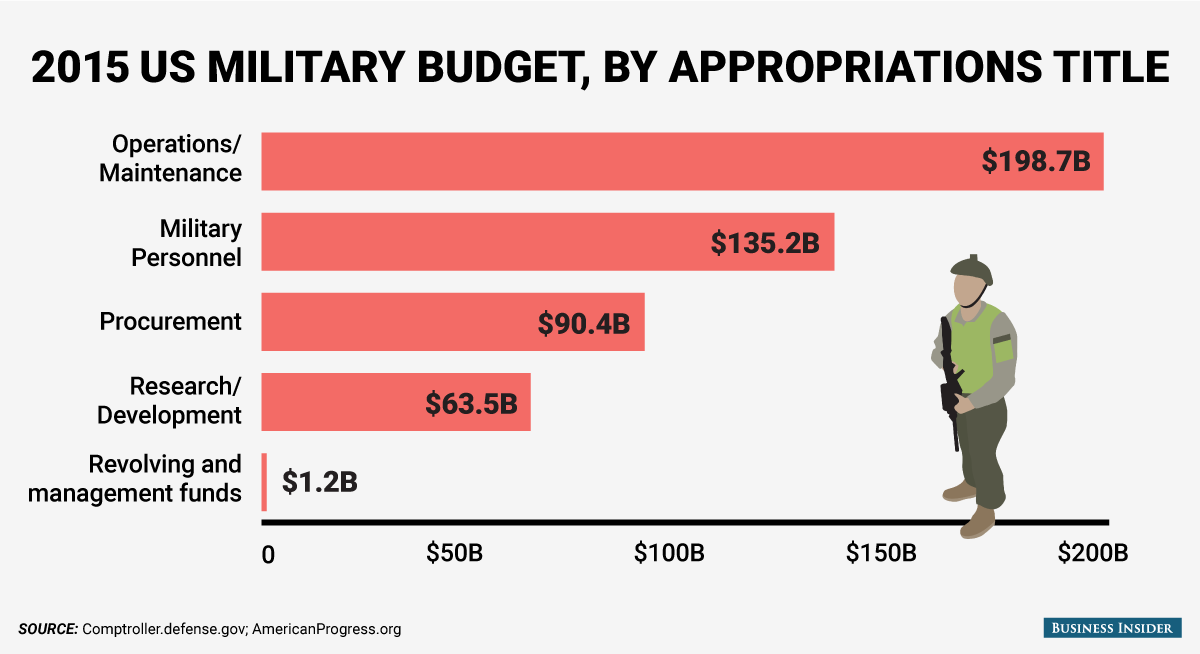
Of the $496 billion base budget, the vast majority of funding goes towards the cost of operating and maintaining the military and the cost of paying and caring for military personnel. A further $90.4 billion is set aside for the procurement of new weapons systems during the 2015 fiscal year.
Here's where the $90.4B in weapons system procurement goes.
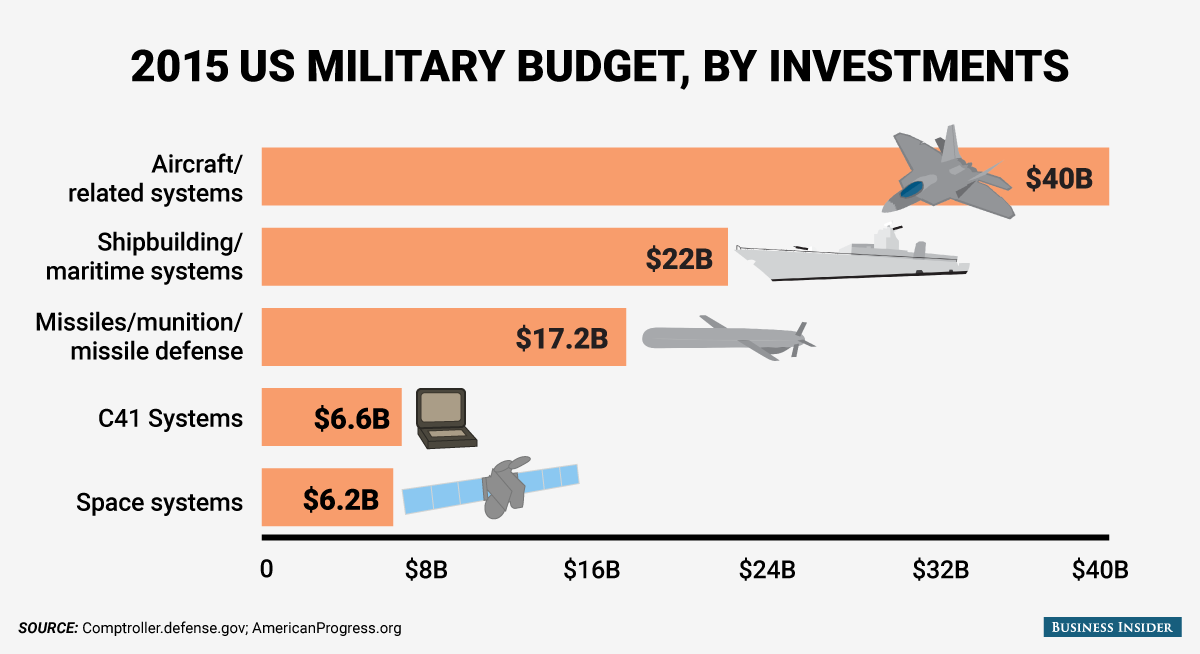
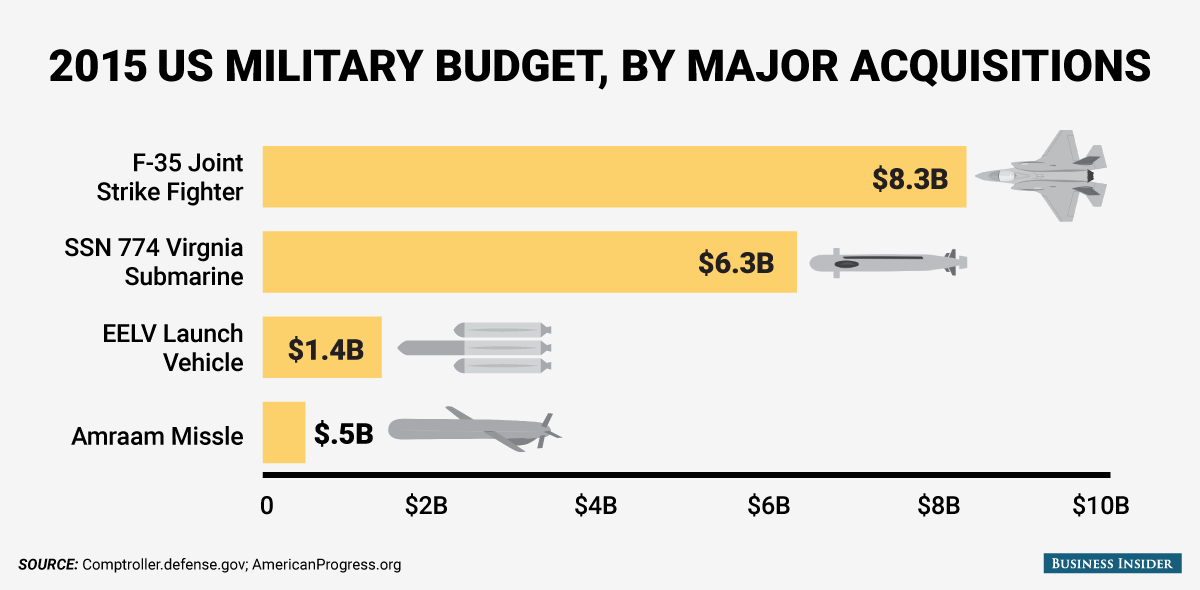
(What's an EELV? Essentially they are the rocket boosters that get discarded when we launch things into space.)
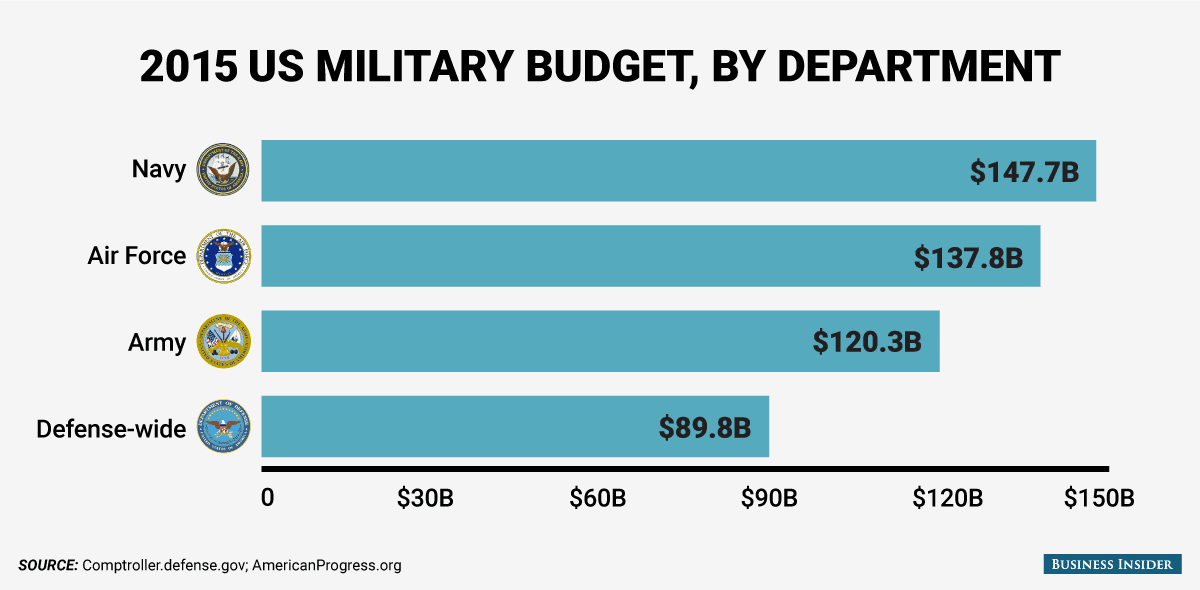
With that high level picture of how the DoD spends our money, are the American people getting what they need in terms of return on our expenditures? How would we know whether our spending is at least paying off, even if it more than the combined spending of the next seven largest military spending nations.
The fact of the matter is that time and time again we hear about what the U.S. cannot afford. Well, if we didn't spend so much of our national treasure on the military, there'd be quite a lot we could afford, things that develop and prepare our citizenry to be more successful on their own and by dint of that, for the overall benefit of the U.S. You see, military spending, in the main, isn't like education or health spending. It doesn't provide downstream returns the way spending on people does. The vast majority of military dollars spent today are simply money spent and gone forever.


And to what end? Of course there are things our military accomplishes that defend U.S. interests. The Navy's actions against trade piracy is an example. I'm not suggesting that we shouldn't do such things, but do we need to spend ~$600B to do that and carry out other peacetime national defense activities?
To put the extent of military spending in domestic perspective:
- The U.S. military budget grew by 114% between 1998 and 2011, which is 8% more than it grew during the height of the Cold War and Reagan. The last time U.S. military spending was similarly high was during WWII.
- The fact that U.S. defense spending has doubled during the same period that its economy has shrunk from 32 to 23 percent of global output.
- The Pentagon spends more on war than all 50 states combined spend on health, education, welfare, and safety.
- The pentagon budget consumes 80% of individual income tax revenue
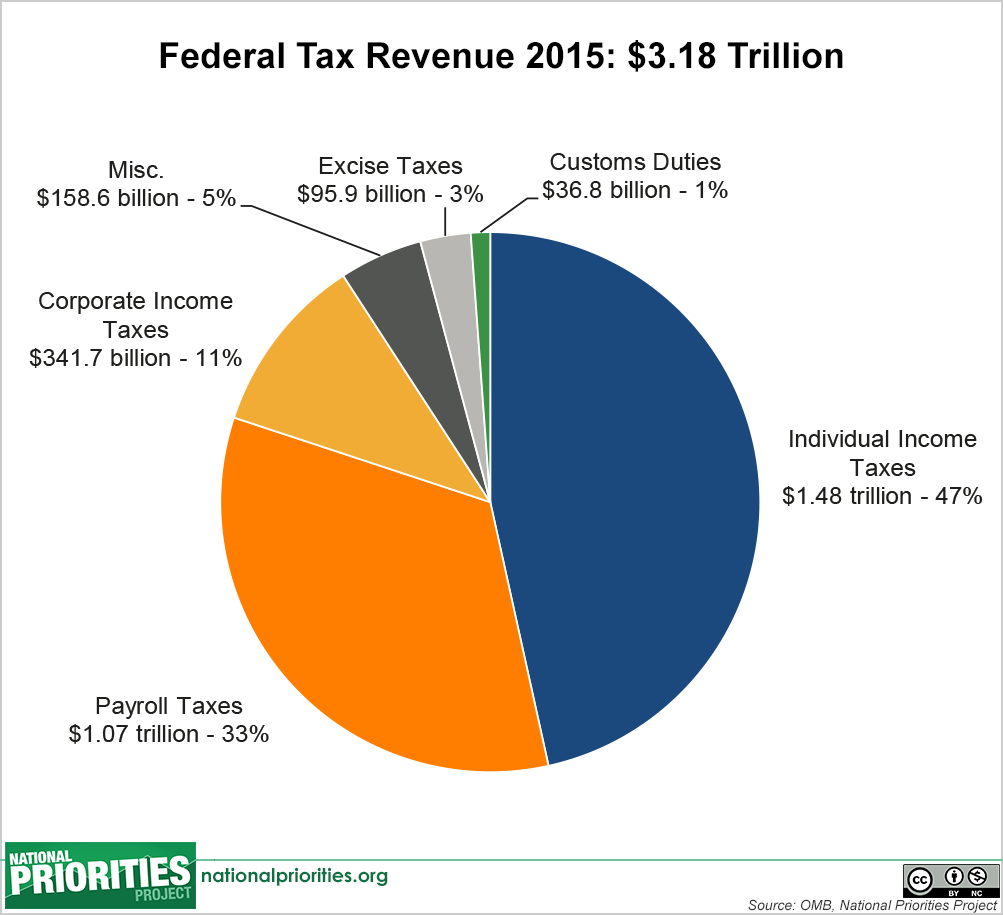
For perspective, America's ~500 billionaires have a total net worth of ~2.5T. Apple's 2015 net income was ~$11B.
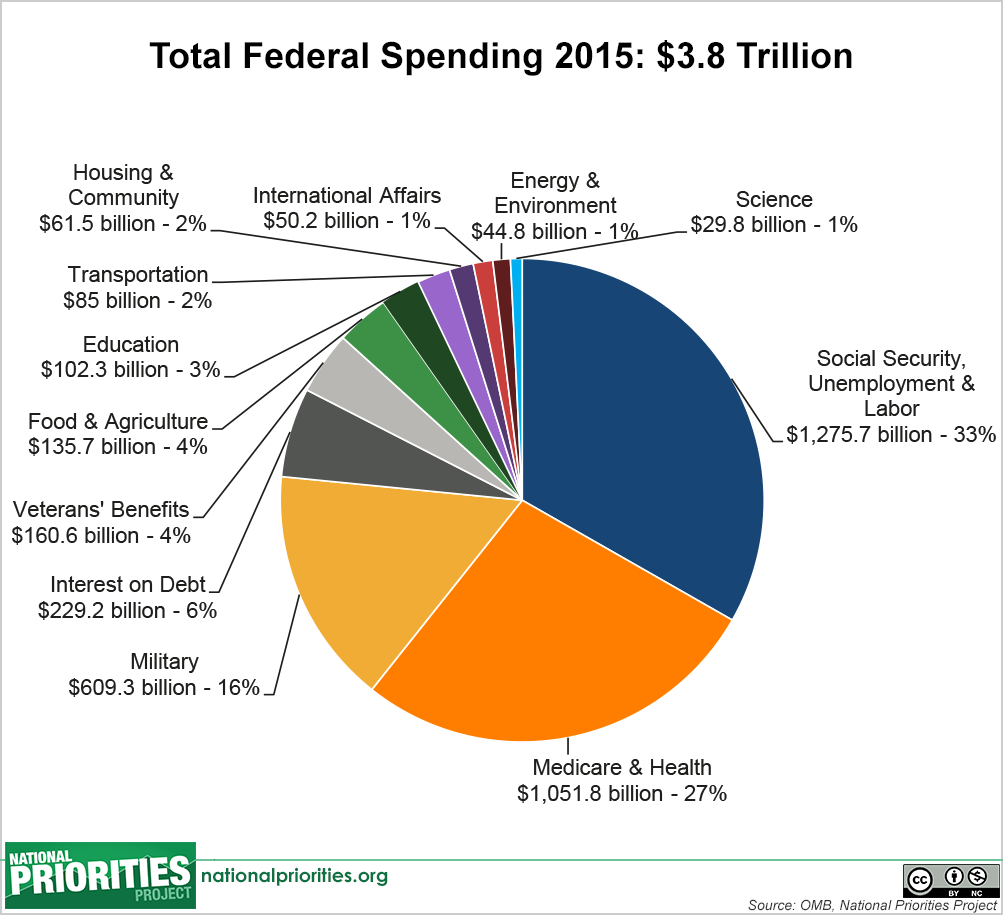
Look carefully at the charts above. Payroll taxes and the Social Security Trust Fund are what mainly pay for Social Security and Medicare expenditures. Income taxes pay for pretty much everything else on which the federal government spends.


Of the $496 billion base budget, the vast majority of funding goes towards the cost of operating and maintaining the military and the cost of paying and caring for military personnel. A further $90.4 billion is set aside for the procurement of new weapons systems during the 2015 fiscal year.
Here's where the $90.4B in weapons system procurement goes.


(What's an EELV? Essentially they are the rocket boosters that get discarded when we launch things into space.)

With that high level picture of how the DoD spends our money, are the American people getting what they need in terms of return on our expenditures? How would we know whether our spending is at least paying off, even if it more than the combined spending of the next seven largest military spending nations.
- The U.S. military might dissuades other nations from invading our homeland. --> Okay, but clearly spending far less, no other major nation's homeland has been invaded either. Who's invaded China or Russia? Canada, India and Australia haven't been invaded either, and Canada and Australia aren't nuclear weapons nations.
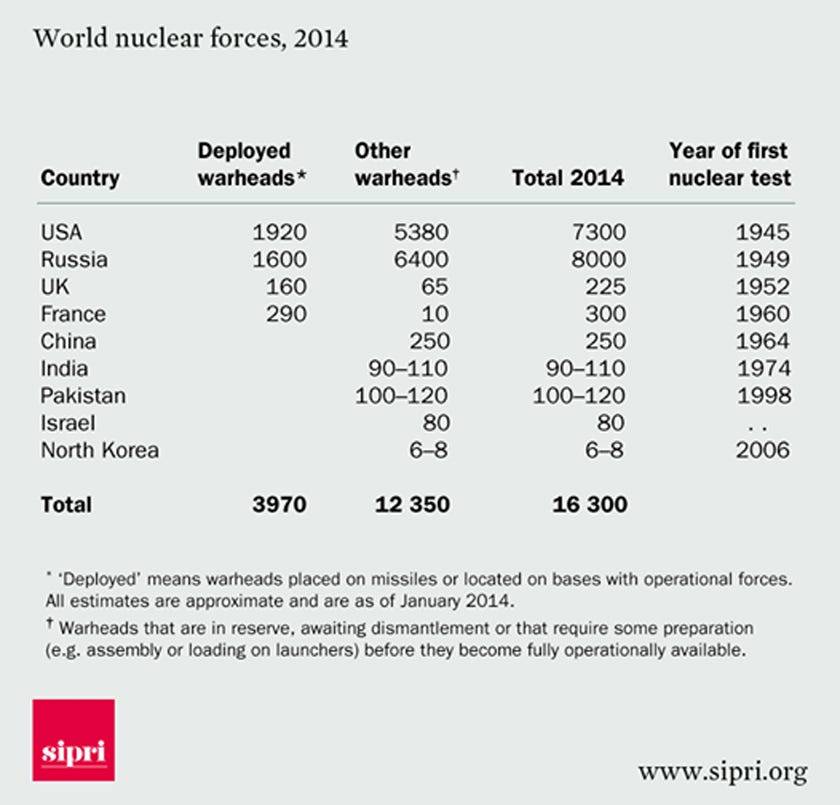
- U.S. military spending defends Americans against ISIS/ISIL. --> Does it? The overwhelming majority of ISIS-conducted attacks have happened nowhere near the U.S., or even North America. Canada has had two. Mexico, Central America and the Caribbean have had none. China hasn't had any ISIS attacks, and China is basically a nation of infidels/heathens. Russia has had one or two.
ISIS attacks happen mostly in Islamic nations, so just who does our military spending defend, assuming it's intended to defend against ISIS? Egyptians, Yemenis and Libyans. The simplest and least costly way for Americans to be safe from harm in those places is to simply not go. I mean really, what's there? Sure, it's nice to visit the Pyramids, but does one really have to do that? Can it not wait? Can't people "watch the movie?" - Our military is effective at eradicating ISIS. --> Nope, the U.S. military doesn't get that done either, yet we spend all that money.
- The military keeps the sea lanes safe for trade. --> The Navy probably does this to some extent, but to what extent it is effective at it is in great question. There were in 2015 nearly 250 piracy events. In 2005 there were about 205 incidents. You'd think that pirates bring to bear powerful ships and forces, right? Well, this is what modern pirate vessels look like.


It's not as though pirates put up much resistance.

Where does piracy happen?

And in spite of all our spending on the Navy, maritime piracy has been on the rise, particularly off the coast of West Africa. Now call me nuts, but as goes U.S. trade with its largest trading partners -- China, Mexico, Canada, Japan, and the EU, the seas off of West or East Africa don't seem like places we need to be terribly concerned about.

So there again, just whose trade are we protecting? Surely we don't need to spend as much as we do to protect U.S. trade. Short of the little bit of oil the U.S. may buy from Nigeria (<10K barrels in 2016), there's little that comes from any African port that is critical to the U.S. economy. What does come from Africa that is essential to global industry? In 2015 we imported ~$19B in goods from Sub-Saharan African countries, with the largest import categories being:
-- Mineral Fuel (crude) ($6.6 billion),
-- Precious Stones (platinum and diamonds) ($2.9 billion),
-- Vehicles ($1.5 billion), Cocoa ($1.2 billion),
-- Iron and Steel ($662 million), and
-- Agricultural consumables ($2.3 billion worth of cocoa and coffee beans, tree nuts, and spices).
In the same year we exported ~$18B in goods to Sub-Saharan African countries.
- The U.S. needs to spend so much on its military because of it's great size. --> Really? The U.S. is the third largest nation on the planet and just a bit over half the size of Russia. It's roughly the same size as China and Canada. Unlike China, the U.S. doesn't share a border with a hostile country, and certainly not with a nation having lots of ISIS sympathizers (potentially ISIS members).
- The U.S. military spending is pay soldiers to fight on the ground. --> Well, we know it's not that because for all the spending we do in the military, about he last thing we do is put "boots on the ground," yet the two largest categories of military spending is to pay for "boots on the ground." I'm not saying we have to put "boots on the ground," but I am saying if that's on what we spend so much money, well, then we should put men on the ground. If we don't want to put men directly in the line of fire, fine, but then stop spending so much on having men for that purpose and to support directly the men who are in the line of fire.
The fact of the matter is that time and time again we hear about what the U.S. cannot afford. Well, if we didn't spend so much of our national treasure on the military, there'd be quite a lot we could afford, things that develop and prepare our citizenry to be more successful on their own and by dint of that, for the overall benefit of the U.S. You see, military spending, in the main, isn't like education or health spending. It doesn't provide downstream returns the way spending on people does. The vast majority of military dollars spent today are simply money spent and gone forever.